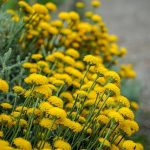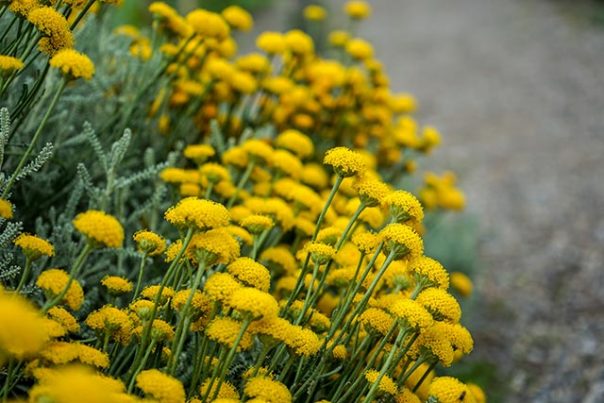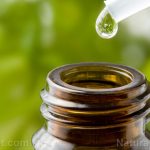
An aromatic plant found in the Mediterranean found to have potent antioxidant properties
Wednesday, February 06, 2019 by Ellaine Castillo
http://www.naturalnewsherbs.com/2019-02-06-an-aromatic-plant-found-in-the-mediterranean-found-to-have-potent-antioxidant-properties.html

Researchers from the University of Setif in Algeria showed that the aerial parts of the cotton lavender plant (Santolina chamaecyparissus) have potent antioxidant and anti-inflammatory activities. To evaluate these properties, the team used various in vitro and in vivo approaches.
- The cotton lavender plant, which can be identified through its bright yellow flowers, is widely used in traditional folk remedy due to its potent analgesic, antihelmintic, antiseptic,
antispasmodic, bactericidal, and fungicidal properties. However, there are no prior studies regarding the antioxidant and anti-inflammatory properties of the aerial parts of the plant. - In this study, which was published in the journal Pharmacognosy Communications, the researchers collected extracts from dried and powdered cotton lavender plants and proceeded to derive its crude (CE), chloroform (CHE), ethyl acetate (EAE), and aqueous (AE) fractions. Afterward, the team determined the total phenolic and flavonoid content of the extracts.
- They observed that EAE had the highest concentration of these phytochemicals, followed by CE and CHE.
- To determine antioxidant activity, the team conducted in vitro free radical scavenging assays using cotton lavender extracts. They also assessed in vivo antioxidant activity of the plant in Swiss albino mice based on parameters like catalase activity, glutathione content, and the degree of lipid peroxidation.
- Meanwhile, anti-inflammatory activity was determined in Swiss albino mice with phorbol myristate acetate (PMA)-induced ear edema.
- Results showed that cotton lavender extracts had free radical scavenging activity and were able to improve glutathione and catalase content. Moreover, the extracts significantly reduced inflammation, as exhibited by reduced ear edema weight.
Overall, the results of this study prove that the cotton lavender plant has potent antioxidant and anti-inflammatory properties, which can possibly be attributed to its phenolic and flavonoid content.
The full text of the study is available at this link.
Read more news articles on plants with medicinal properties by visiting Phytonutrients.news.
Journal Reference:
Meriem D, Abderrahmane B, Moufida A, Lekhmici A. IN VITRO AND IN VIVO ANTIOXIDANT, ANTIHEMOLYTIC AND ANTI-INFLAMMATORY ACTIVITIES OF SANTOLINA CHAMAECYPARISSUS EXTRACTS. Pharmacognosy Communications. January 2018;8(1). DOI:10.5530/pc.2018.1.4
Tagged Under: Tags: anti-inflammatory, antihemolytic, antioxidant, cotton lavender, flavonoids, goodhealth, Herbs, inflammation, medicinal herbs, phenolic compounds, Santolina chamaecyparissus





